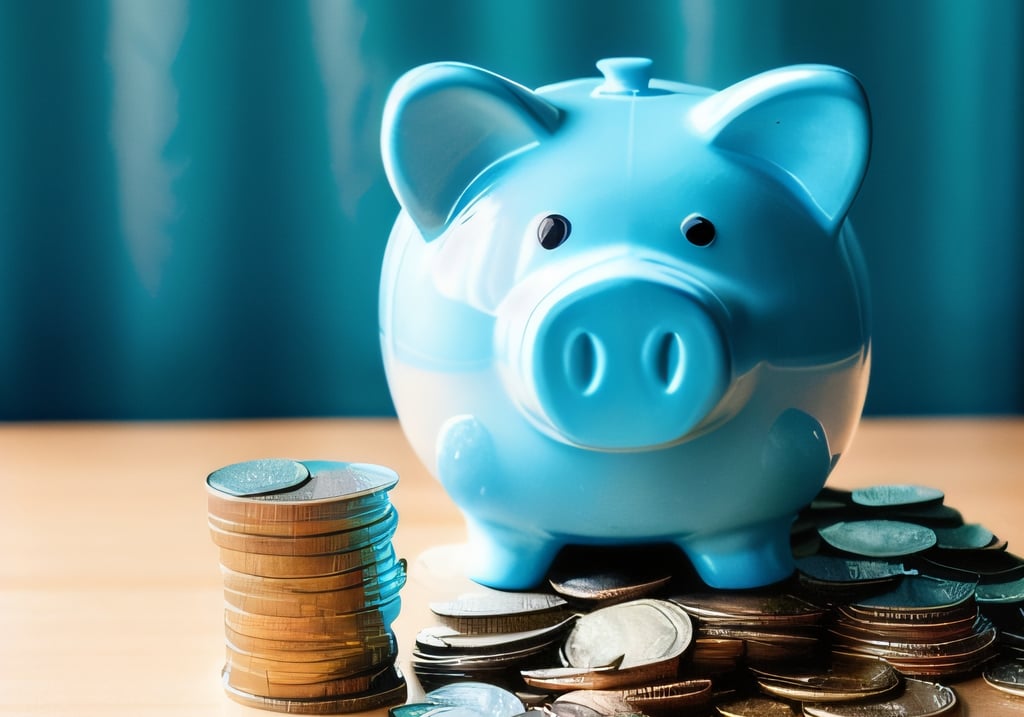Emergency Fund: Your Safety Net in Times of Crisis
Know the importance of having an emergency fund as your financial safety net in times of crisis. Learn how to build and manage your fund effectively to secure your future.
PERSONAL FINANCE


Emergency Fund: Your Safety Net in Times of Crisis
Why is an emergency fund vital? I remember the time I pinched pennies as a working student years ago. One thing I was careful about was not getting sick. It meant spending on hospital admission and medicines. Moreso when I got married!
Life has a funny way of throwing unexpected curveballs, right? That's why it's crucial to be ready for any financial storms that might come your way. So, that's where the Emergency Fund comes into play. In this article, learn about emergency funds. Moreover, understand why they're important and how you build and manage them effectively. Let's get started!
Three Reasons Why You Need an Emergency Fund
Life can be unpredictable. Emergencies have a knack for catching you off guard. May it be an unexpected medical expense, a sudden job loss, or a major car repair. That's why having an emergency fund is essential. Here are three reasons why:
Financial Security: An emergency fund serves as a safety net. It provides you with peace of mind and a sense of financial security during tough times. Moreover, you won’t have to worry about where to get money when you need it.
Cushion Against Debt: When faced with an emergency, having a dedicated fund prevents you from accumulating debt and falling into the cycle of high-interest loans. With an emergency fund, you can bounce back quickly after an unexpected event, avoiding prolonged financial stress.
Keep You Healthy: A study finds that when people felt financially secure and capable, their health generally improved. On the other hand, when people were struggling with financial problems, their health tended to be worse. These findings suggest that having good financial standing is important for overall well-being.
Building Your Emergency Fund in Five Ways
Now that you understand why an emergency fund is crucial, let's talk about how to build one effectively. Here's a step-by-step guide:
Set a Goal: Determine how much you'd like to save for emergencies. A good rule of thumb is to aim for at least three to six months' worth of living expenses.
Start Small: If saving a large sum seems daunting, don't worry. Begin by setting aside a small amount from each paycheck. Then, gradually increase it over time.
Automate Your Savings: Make your life easier by automating regular contributions to your emergency fund. Set up automatic transfers from your paycheck or checking account to ensure consistent progress.
Cut Unnecessary Expenses: Review your budget and identify areas where you can cut back. By reducing discretionary spending, you can allocate more funds to your emergency fund.
Boost Your Income: Consider finding additional sources of income, such as freelance work or a part-time job. The extra money can accelerate your emergency fund's growth.
Remember, Confucius once said, “A man who does not plan long ahead will find trouble right at his door.”
Managing Your Emergency Fund in Three Ways
A study reveals that many families don't have enough money saved for emergencies. Knowing about money, feeling confident, and having a savings account are important.
Building the fund is just the first step; managing it effectively is equally important. Here are some tips to help you make the most of your emergency fund:
Keep it Separate: Open a separate savings account dedicated solely to your emergency fund. This separation will ensure that you don't dip into it for non-emergency expenses.
Accessible Yet Not Tempting: While you want your fund to be easily accessible, avoid linking it to your debit card. Opt for an account that provides a reasonable interest rate without withdrawal restrictions.
Review and Replenish: Regularly assess your emergency fund's balance and adjust it based on any changes in your financial situation or living expenses. Aim to replenish any funds used during emergencies promptly.
Frequently Asked Questions
1. How do I determine the right amount for my emergency fund?
To calculate the ideal amount, consider your monthly expenses, job stability, and any potential risks. Aim for a minimum of three to six months' worth of living expenses.
2. Can I invest my emergency fund in stocks or other high-risk assets?
It's generally recommended to keep your emergency fund in low-risk, easily accessible accounts, such as a high-yield savings account or a money market fund. Investments with higher risks may not be suitable for short-term emergencies.
3. What qualifies as an emergency?
A: Emergencies can include job loss, unexpected medical bills, major home repairs, or car accidents. Evaluate situations based on their impact on your financial stability and prioritize accordingly.
Conclusion
Congratulations! You've taken the first step toward securing your financial future by learning about emergency funds. Building an emergency fund is a journey that requires consistency and discipline.
Start small, automate your savings, and watch your fund grow. With an emergency fund in place, you'll have the peace of mind of knowing that you can weather any financial storm that comes your way. Stay prepared, and stay financially secure!
Follow us for your daily inspirational boost.
Sources:
https://www.sciencedirect.com/science/article/pii/S0277953621003737
https://www.ncbi.nlm.nih.gov/pmc/articles/PMC7236434/
